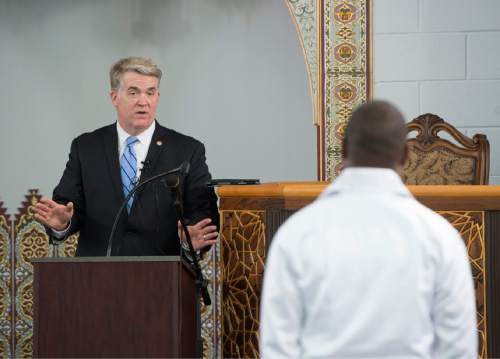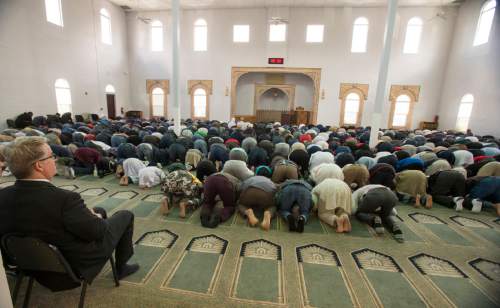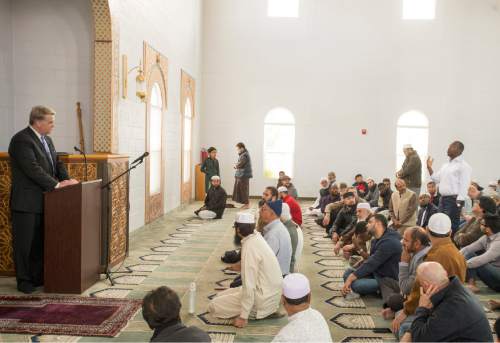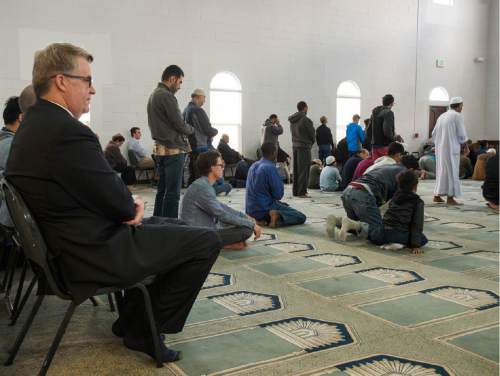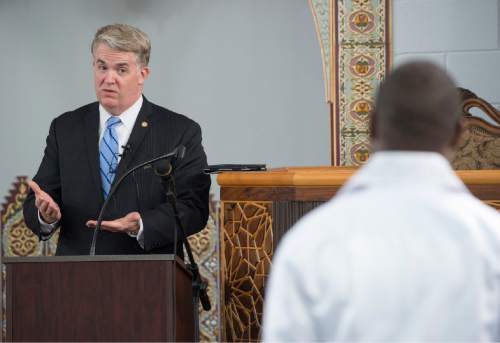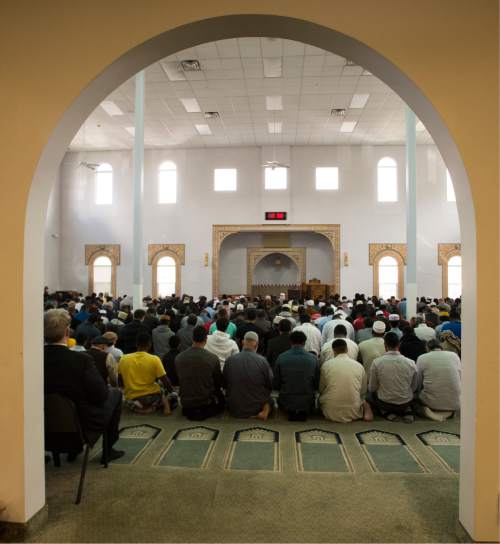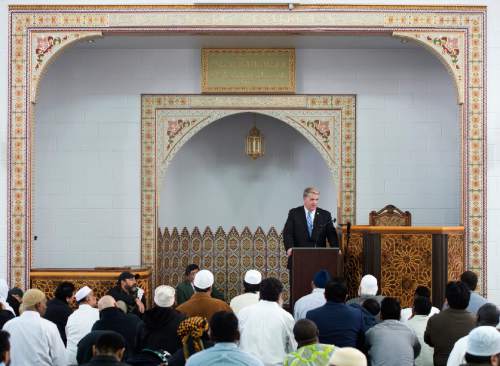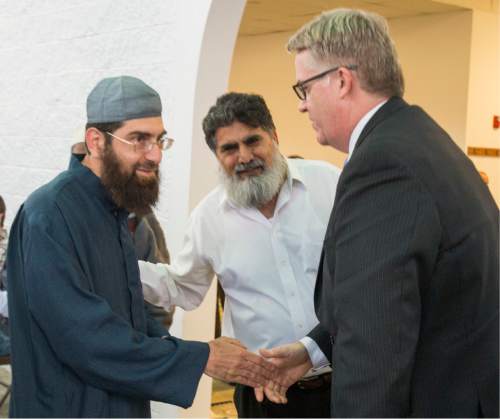This is an archived article that was published on sltrib.com in 2016, and information in the article may be outdated. It is provided only for personal research purposes and may not be reprinted.
West Valley City • A week after anti-Muslim graffiti was discovered on posters in a University of Utah building, U.S. Attorney for Utah John Huber assured members of the Islamic community that his office is looking out for them.
"I promise to do our very best to protect your civil liberties," Huber said Friday to participants in prayers at Khadeeja Islamic Center, Utah's largest mosque.
Huber also met with center leaders as part of his visit, which had been scheduled before seven posters in Orson Spencer Hall advertising a lecture about Islamophobia were found defaced April 8. The vandalism is under investigation by U. police.
The visit to the mosque was part of a nationwide effort by the U.S. Department of Justice to address the backlash against Muslim, Arab, Sikh and South Asian Americans after the terrorist attacks in Brussels, Paris and San Bernardino, Calif.
Huber and U.S. attorneys in other states are working with community leaders and law enforcement to address discrimination, violence and harassment that target people because of what they look like, which country they come from or how they worship.
In Utah, Salt Lake City interim Police Chief Mike Brown also met recently with leaders of the Islamic Society of Greater Salt Lake.
Since the Sept. 11, 2001, terror attacks, the Justice Department says it has investigated more than 1,000 incidents involving violent acts, threats, assaults, vandalism and arsons targeting Muslim, Arab, Sikh and South Asians or people perceived to be members of these groups.
Huber encouraged members of the Muslim community to assert their rights if they believe they have been stopped by police because of their appearance or discriminated against by government agencies or someone at a school. He told the prayer participants to get the relevant details, such as an officer's name and agency, so the matter can be investigated.
Such incidents often can be resolved by complaining to a person's supervisor, Huber said. If there is a systemic problem at an institution, the U.S. attorney's office can build a case against the offending agency, he said.
Huber said he has a longstanding relationship with mosque members, which helps when challenges arise.
The president of the Islamic Society of Greater Salt Lake agreed.
"All of the visits reassure people," said Salman Masud, adding that times have been especially trying because of charged election rhetoric.
Beginning this week and lasting through May 6, U.S. attorneys were slated to be at events in Utah, California, Colorado Connecticut, Idaho, Louisiana, Massachusetts, Michigan, Minnesota, New Jersey and Ohio.
Twitter: @Pamela MansonSLC


